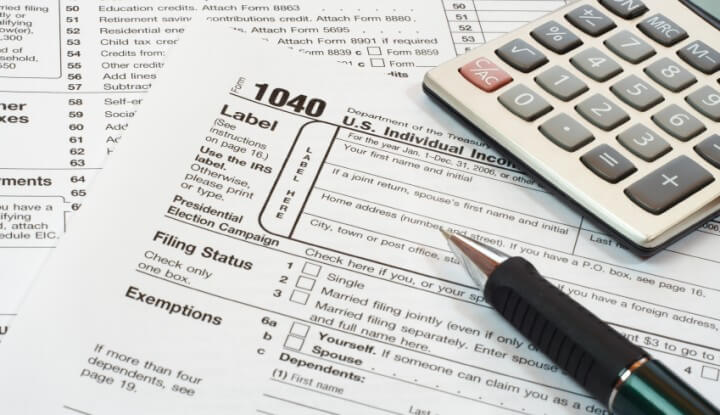At the end of each year we get a tremendous number of questions regarding the sale of stock and the tax ramifications. Not only do traders want to know what they will owe on April 15th, but they also want to know whether or not they should sell stock for tax purposes.
First, let’s talk about tax liability from sales for stock. Keep in mind that we are speaking in terms of trading done in 2010. The old saying that nothing is for sure but death and taxes may be true, but death doesn’t change every time Congress meets…however taxes might.
Capital Gains Tax Rates
Long-term and short-term capital gains taxes are still up in the air as of the writing of this article. There is currently a debate in Washington about whether to extend the Bush tax cuts, allow them to expire, or make some type of compromise. Regardless of the outcome of this debate, short-term capital gains (which applies to any stock sold within one year of purchase) will continue to be taxed at your ordinary income rate. However, long-term capital gains (which applies to stocks held longer than one year) could see a change.
If the Bush era tax cuts are extended, long-term capital gains will remain at 0% for those in the 15% tax bracket or lower. If they are not extended, taxpayers in the lowest bracket should expect to pay 10%. For everybody in the tax brackets about 15%, long-term gains will be taxed at 15% if the Bush cuts are extended, and 20% if they are not. Of course, all of this is subject to a different rate, if there is some sort of compromise.
*Update for 2015: For stock trading in the tax year 2014, long term capital gains are taxed at 15% for everyone other than those tax payers in the highest tax bracket. If you are in the highest bracket, your rate will be 20%.
Calculating Cost Basis
When selling an entire position of stock, your cost basis is the average cost of all your shares. When selling only a portion of your position, many traders want to know how they calculate gains if shares were bought at different prices. There are two ways to account for cost basis in this case. The first way is “FIFO”, which stands for First In, First Out. In other words, when selling a portion of your position, you are selling the shares you have owned the longest.
There are times when selling shares other than the ones you bought first could be more advantageous for taxes. You have the right to use what is called the, “Specific ID” method. This will allow you to identify certain shares you are selling. In order to use this method, you must tell your broker before placing the sell trade that you want to sell specific shares. There needs be a written confirmation of this instruction maintained for your tax records.
Capital Loss Carryover
Since the markets can be rough on a lot of investors, losses on stock trades should be discussed. If you have more capital gains than capital losses for the year, you can use you losses to offset an equal amount of gains. If you have more losses than gains, you can offset all of your gains, plus take an additional $3,000 loss for the year. If your losses outweigh your gains by more than $3,000, you are allowed to carry those extra losses forward into future tax years.
Should I Sell My Stock To Save Taxes?
The next question we’re asked about is whether or not somebody should sell his or her stock for tax purposes. Our answer is that taxes should always be a consideration when trading stocks, but it should never be the primary consideration. In other words, do not sell a stock that is trending higher or could make a short-term move higher just, to create a tax loss. Use your research and analysis to guide trading decisions, not the tax code. The only caveat we would add is if your stock sale would create a gain, it’s most likely to be worth your while to wait for the first trading day of the next year to sell.
Trade Date or Settlement Date?
Some traders get confused over trade date and settlement date when selling for tax purposes. In almost all cases, the trade date is what matters for taxes, not the settlement date. So if you place a sell order with your broker on the last trading day of the year, the trade won’t settle until the following year, but you are still entitled losses, or responsible for gains.
The time when this isn’t correct is if you have sold stock short and are buying the shares back to cover (close out) your short position at a loss. In this particular case, the IRS uses the settlement date for tax purposes. Trade settlement is 3 business days after the trade date. So, if you need settlement to fall in the current tax year and December 31st falls on a Friday, you need to close your position on Tuesday to take the loss in the current year. If you are covering a short position and taking a profit, the trade date is once again used for tax purposes.
Wash Sale Rule
Remember that if you do sell stock to generate a loss, you are prohibited from purchasing “substantially identical securities” within the period beginning 30 days before and ending 30 days after the sale that generated the loss.
We hope this answers your stock trading tax questions. We would like to point out that we are neither CPAs nor Tax Attorneys. Please consult a tax professional for their opinion on any complicated tax issues you have.



